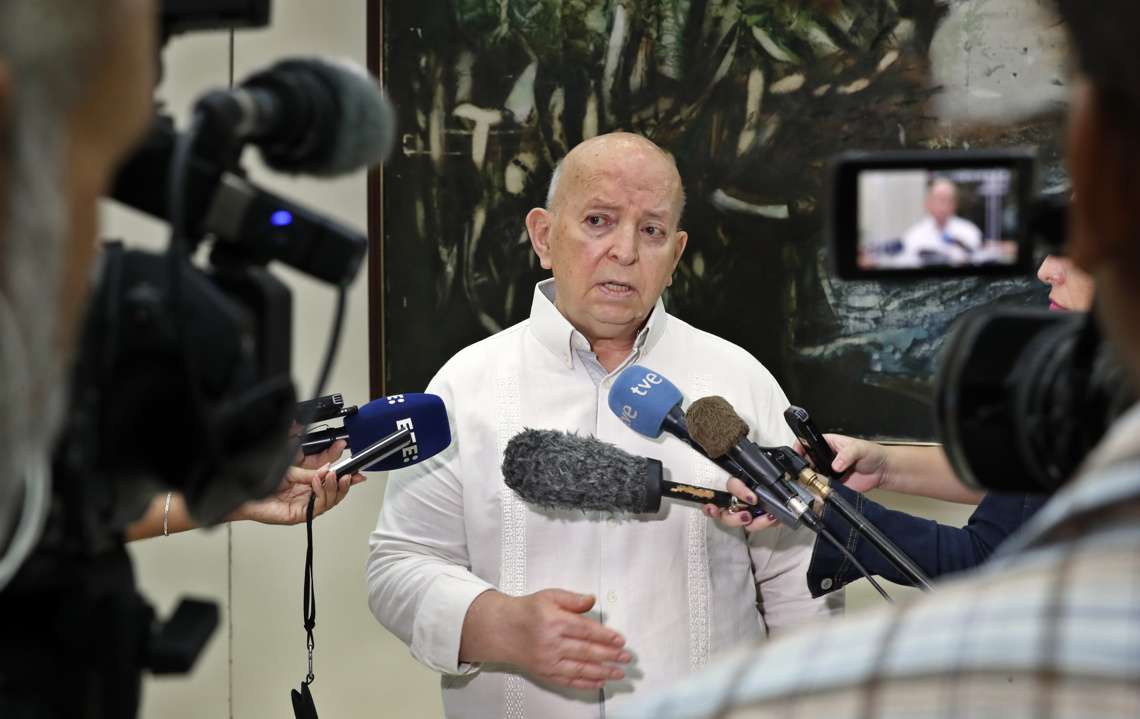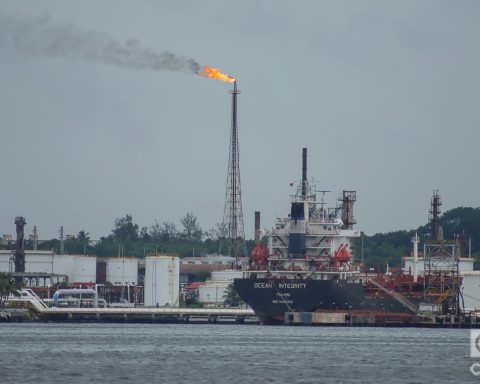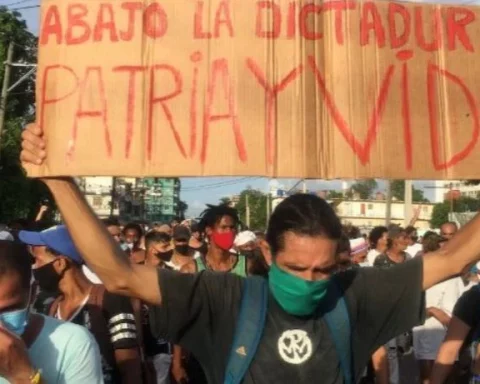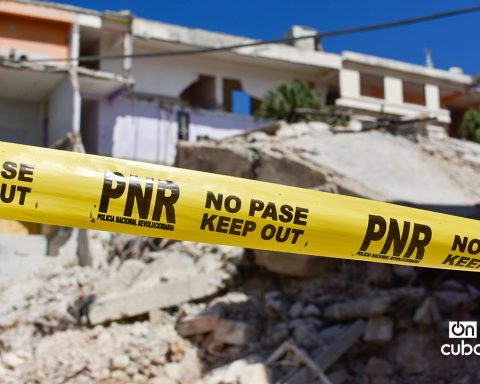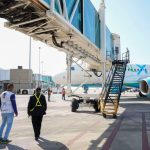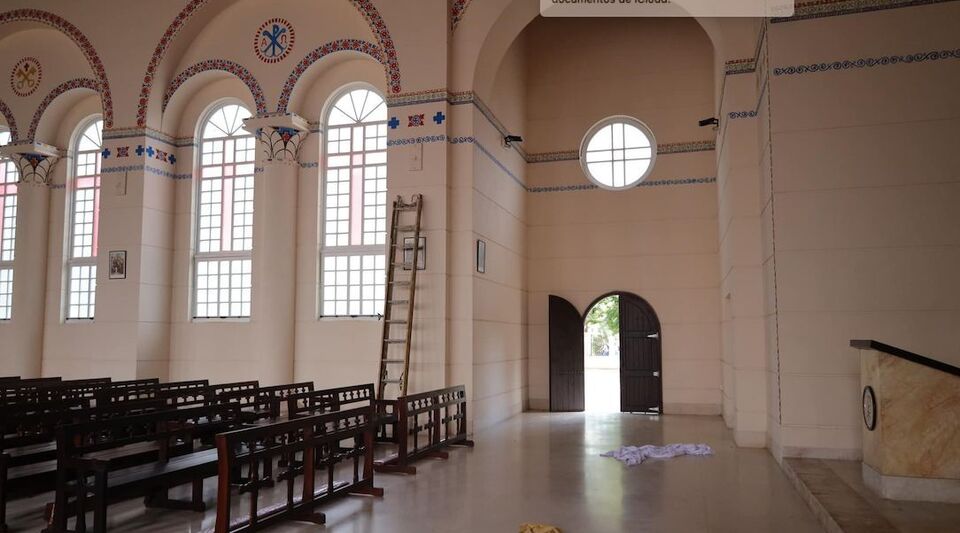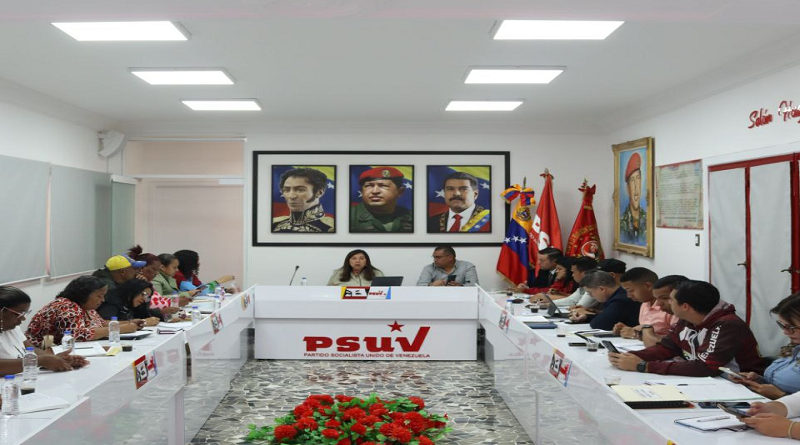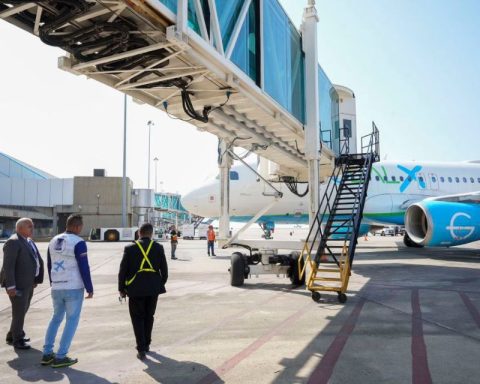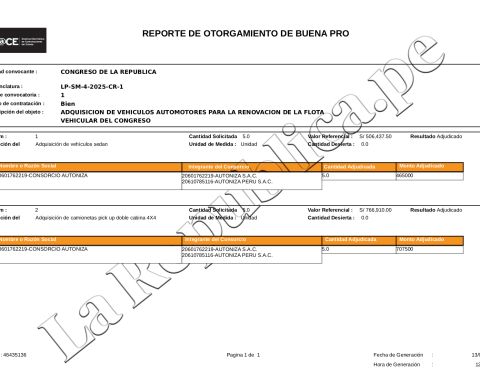The chief negotiator of the Colombian government in the peace talks with the National Liberation Army (ELN), Ottty Patiño, pleaded today in Havana to achieve a “temporary ceasefire with a view to prolonging and deepening it” that would allow some “elections in peace”.
Patiño made these statements in a meeting with international and Colombian media in Havana, after the installation of the third cycle of the peace talks table in Cuba, a round that follows those held in Venezuela (November) and Mexico (March).
“The idea is that we agree to a temporary cessation with the aim of giving it prolongation and depth, and that it be irreversible,” said the chief negotiator of the government delegation.
The objective, he added, is that when the elections arrive, Colombia has a ceasefire that prevents “sabotage of the elections”, “constraint on voters” and any “armed mediation”, while allowing “freedom for that the parties can put their candidates”.
“All this issue of elections in peace is what forces us to deepen the ceasefire,” he added.
In this matter, the chief negotiator of the ELN, Israel Ramírez, alias Pablo Beltrán, assured this Monday that his objective was a ceasefire designed with “realism”, so that it works “100%”. He stressed that such a measure would be “preliminary” and that it must be “fully achievable, measurable and evaluable.”
Patiño, for his part, indicated that hostilities are included in the ceasefire (damage against the civilian population: from threats to confinement, through forced displacement and the recruitment of minors) and entails a “geographical limitation” to make it verifiable. .
He stressed that “without a ceasefire it is impossible to advance the transformations and humanitarian actions” that are also being negotiated in these peace talks and that “without a ceasefire and without a cessation of hostilities a transformation and democratic participation is not possible” so that an “immense” part of the Colombian population has a voice.
fast forward
Colombia can be “confident that we are going to reach a ceasefire, that we are going to advance on the issue of participation and that we are going to consolidate humanitarian actions and dynamics,” he said.
Patiño advocated moving forward “as quickly as possible”, but without pushing “excessively” the ELN, which needs to “consult” and “come together to the final signing of the agreements”.
He also valued as “good news” that Nicolás Rodríguez Bautista, alias Gabino, has joined the ELN delegation.
“We believe that Gabino, despite the fact that he is no longer the ELN commander, is a man who is a symbol of ELN unity and therefore a guarantee that we can advance much faster with him than without him,” Patiño said. .
Regarding the Mexico Agreement, the agreement reached by the parties in March in the second cycle of contacts, the chief negotiator of the Government of Colombia considered that it is “quite solid and quite audacious”: “The task we did, we did quite well “, he claimed.
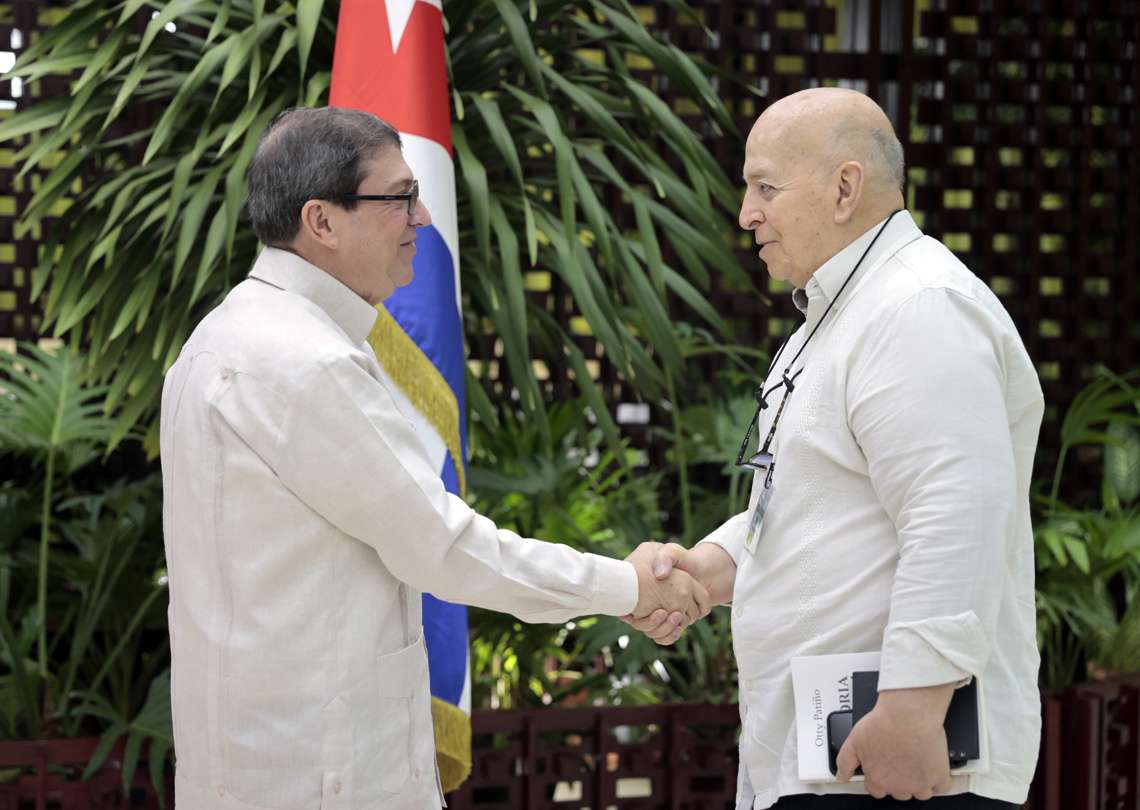
Gustavo Petro, from Madrid
The Colombian president arrived in Spain today on his first state visit to the country, with the aim of deepening bilateral relations, mainly economic ones, and obtaining Spanish support for the so-called Colombian Peace Plan.
In conversation with the media, referring to the peace talks with the ELN guerrillas in Havana, the Colombian president pointed out that “peace processes always have to lead to a ceasefire.”
“If not, there is no point in talking about peace. We have proposals on our side that have to do with regionalizing the ceasefires and also periodizing them. Then you can start with some regional cessations and as time goes by and trust spreads, then you can think that they will extend to the entire territory, “he pointed out.
Cuba in the peace processes in Colombia
The peace negotiations between the Colombian government and the guerrillas of the National Liberation Army (ELN) return this Tuesday to Cuba, a country that has played a key role in these dialogues despite the political and economic cost that it has entailed.
Havana, guarantor of the entire process, welcomes this third cycle of peace talks with a view to achieving progress, especially after the violence that has overshadowed the process in previous months and raised doubts about his health.
A success would be a bilateral ceasefire, one of the axes of the talks that will take place throughout this month in the Cuban capital, together with the issue of humanitarian relief and the participation of civil society in the process. according to the agreed schedule.
The return of the delegations to Havana, which was already the venue for contacts between the parties until the freezing of negotiations in 2018, a decision by then-Colombian President Iván Duque (2018-2022) after an ELN attack, may contribute to progress. .
“Cuba has been indispensable in the search for peace between the Governments of Colombia and the ELN. Not from now, but from a long time ago,” he assures EFE Senator Iván Cepeda, member of the government delegation, who points out that “fundamental dialogues” took place on the island between the parties.
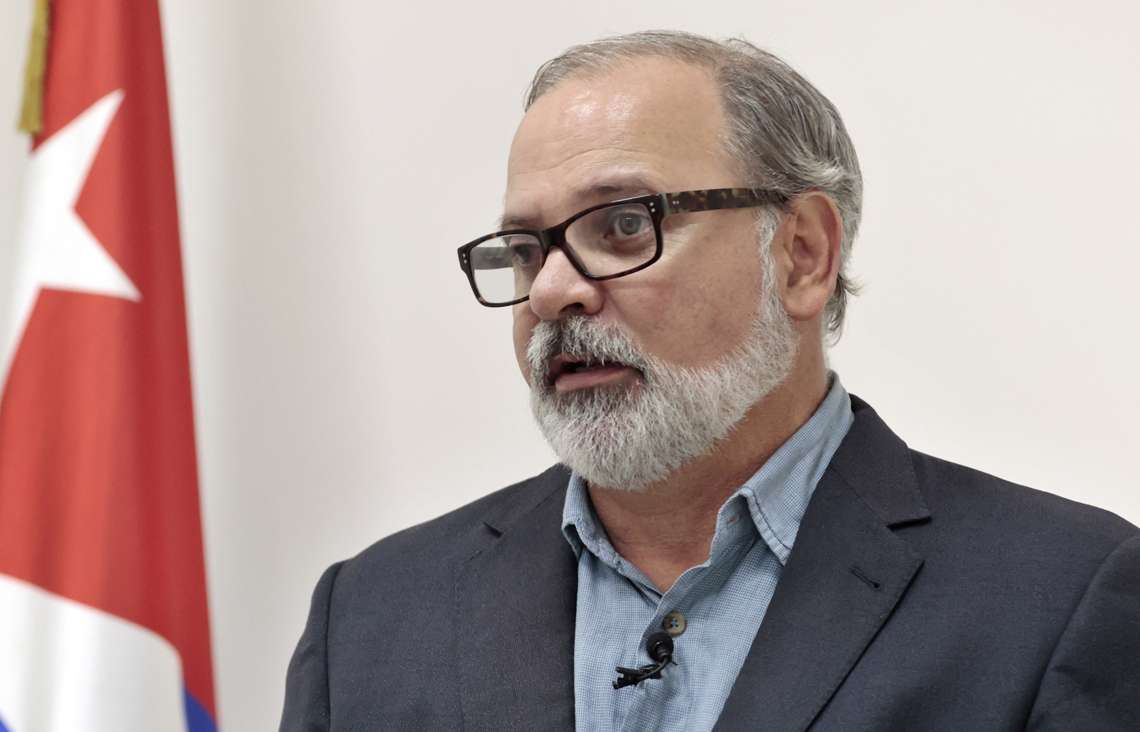
The Cuban government is aware of its role. In an interview with EFE, The general director of Latin America and the Caribbean of the Foreign Ministry, Eugenio Martínez, points out that when both parties asked Havana to return to the island, the Executive replied that it was “an honor.”
“For Cuba it is a firm conviction, a deep conviction, that the Colombian armed conflict must have a political solution” and “that it is time for Colombia to achieve peace,” he affirms.
Martínez defines the role of Havana as “discreet”, “impartial” and “very responsible”, guaranteeing the climate for a dialogue “without interference”. “We support politically, diplomatically, and we create the conditions for the parties to have a stage, like Havana now, so that they can work fully,” he points out.
terrorist list
Martínez also alludes to the “very high costs” that his country has paid “for defending what the parties agreed to and what Cuba committed to.”
He refers to the inclusion of the island in Washington’s list of countries that sponsor terrorism, something that has seriously affected Havana’s international finances at a time when the country is going through a serious economic crisis.
The United States, still under the administration of Republican Donald Trump (2018-2022), included Cuba on this list for its refusal to hand over Colombia to the ELN negotiators after the breakdown of negotiations in 2018, despite the extradition request. of Duke.
Havana claimed that the protocols indicated that in the event of a breakdown in the negotiations, the parties had to guarantee the safe return of the negotiators. The ELN representatives remained waiting for 45 months on the island, until Gustavo Petro became president in Colombia.
Cepeda argues in this sense that “Cuba paid a very high cost for respecting the rules as a guarantor country” and “for having fulfilled its commitments in terms of Peace.” He describes as “unpresentable from the point of view of international legality” that Duque ignored “the rupture protocol and demanded that Cuba hand over” the ELN negotiators.
The chief negotiator of the ELN, Israel Ramírez, alias “Pablo Beltrán”, considers “very commendable that Cuba has maintained a position of principles” by “demanding that the agreements be fulfilled” and recalled that the island has been “since the 1990s” facilitating contacts between the Government of Colombia and the ELN.
It was a “very strong international legal battle” that Cuba won, “but at a very high price,” said “Beltrán” in a meeting with international media in Havana shortly before beginning the third cycle of peace talks.
Martínez, for his part, believes that if Cuba had handed over the ELN negotiators then, perhaps the peace negotiations could not have been resumed now. “This is a modest but important contribution from Cuba,” he underlines.
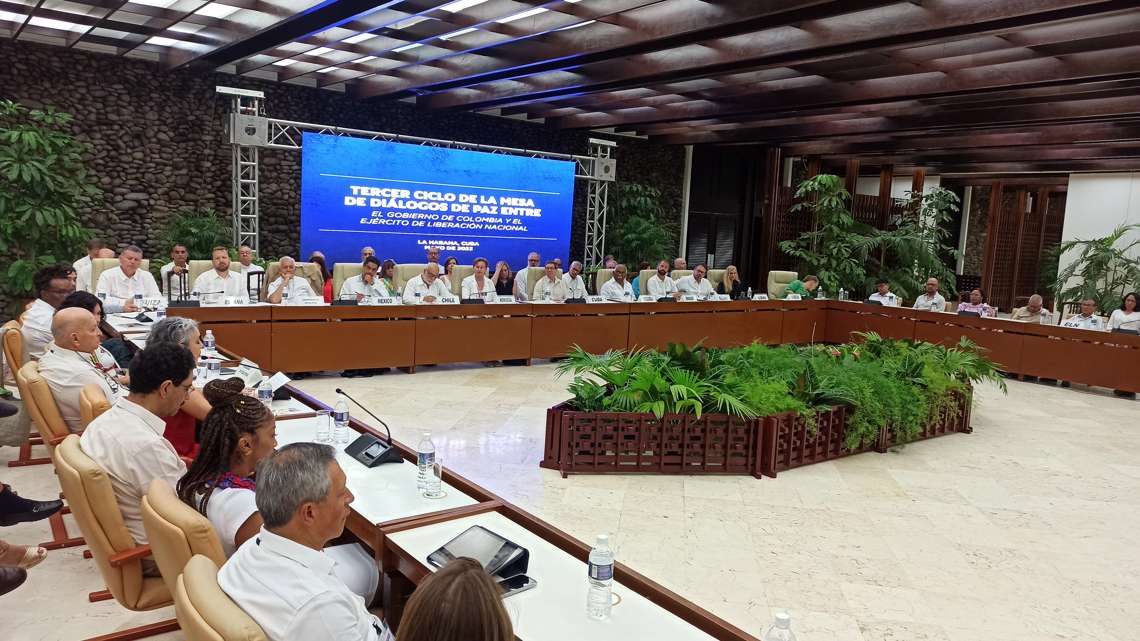
progress
For Cepeda, “the best tribute” that the parties can pay to Cuba for its role yesterday and today is to advance the process and “reach agreements.” “I think that weighs” on the delegations, considers the senator.
Beltrán, for his part, considers that the celebration of the third cycle on the island is an “act of reparation” with Cuba and maintains that if Havana “was right in maintaining its position” of not handing over Bogotá to the ELN negotiators, it deserves “a compensation, a reparation”.
The recent disagreements between the parties do not seem to invite optimism, but the delegations arrive with a clear mandate in this regard. Martínez is hopeful that “the magic” that Havana has shown in other negotiations will work this time, although he acknowledges that he does not know “if the parties are ready.”
“We look forward to the momentum they come with and at the point they left it in Mexico. We have some assurance that something important will come out of Havana”, he assures.
